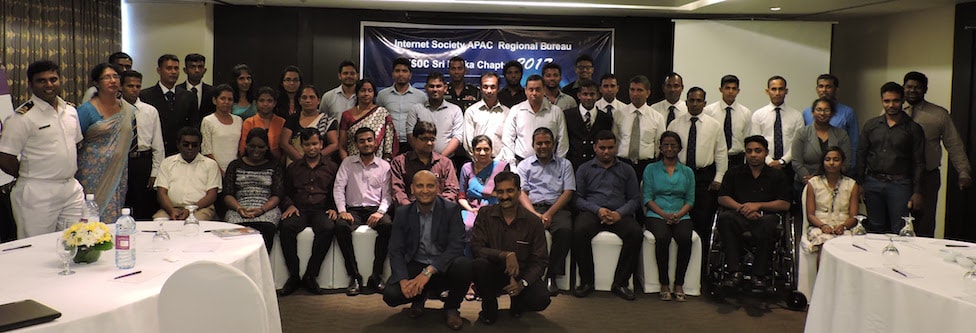Starting December 2015, the Internet Society Asia-Pacific (ISOC APAC) Bureau in collaboration with local stakeholders including government, industry and the civil society, has led a series of endeavours to help further digital accessibility in Pakistan.
Building on the success of our work in Pakistan, and in an effort to replicate the learnings in other parts of the Asia-Pacific, we recently held a workshop on digital accessibility in Colombo, Sri Lanka, hosted by the ISOC Sri Lanka chapter.
The workshop started off with a training and awareness session on accessibility standards and design principles. The session had Persons with Disabilities (PWDs) sharing their experiences and needs with website and mobile application developers. The moderator, Deshabandhu Manique Gunaratne, explained accessibility features and guidelines with some tips for the development of accessible websites and applications. She also explained some of the approaches to the redesign of the user interface for websites using Website Content Accessibility Guidelines (WCAG) 2.0 standards.
It came as no surprise that most of the developers present had no idea about accessibility features, or of some of the easy-to-implement actions when developing websites and general applications. Sharing the experience of users with visual, hearing and physical impairments, it was stressed that the optimal approach to promoting accessibility is by building it in during the design phase of websites, services and applications.
PWDs also mentioned the affordability of assistive technologies, cultural stigma issues, lack of digital literacy, unavailability of appropriate local language content and connectivity problems as some of the other barriers that limit them from better using the Internet and mobile technologies.
In the latter part of the workshop, various stakeholders, both from the public and private sector, engaged in a dialogue on digital accessibility policies, products and services in Sri Lanka. The Hon. Secretary, Ministry of Telecommunications & Digital Infrastructure, Government of Sri Lanka and Mr. Senarath Attanayake, Member of the Uva Provincial Council were among the session speakers.
During the discussions, it was highlighted that the Sri Lankan Government had issued a policy direction in 2010 to improve both accessibility and usability features of all government websites. However, the implementation of this policy has remained slow – largely because government webmasters are not aware of accessibility design principles.
Some of the other points raised by the PWDs ranged from adoption of standards by government for designing accessible websites and services; the accessibility of emergency services; support for relay services; access to local information about suitable communications products and services; the involvement of PWDs and their representative organisations in policy development processes; and establishing a coordinated monitoring and reporting framework related to the progress of digital accessibility in Sri Lanka.
The workshop concluded with a call for some immediate action, including implementing accessibility features in the top 10 government websites and developing a training program on web accessibility for government employees (especially developers/webmasters) with the support of the Ministry.
Some of the workshop moments are captured at http://bit.ly/2oR00pV

